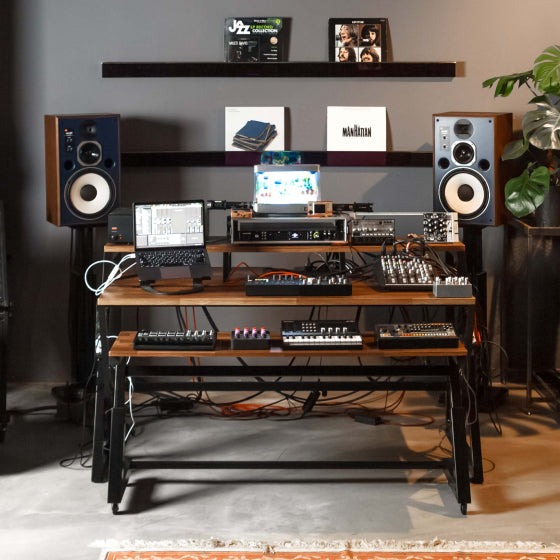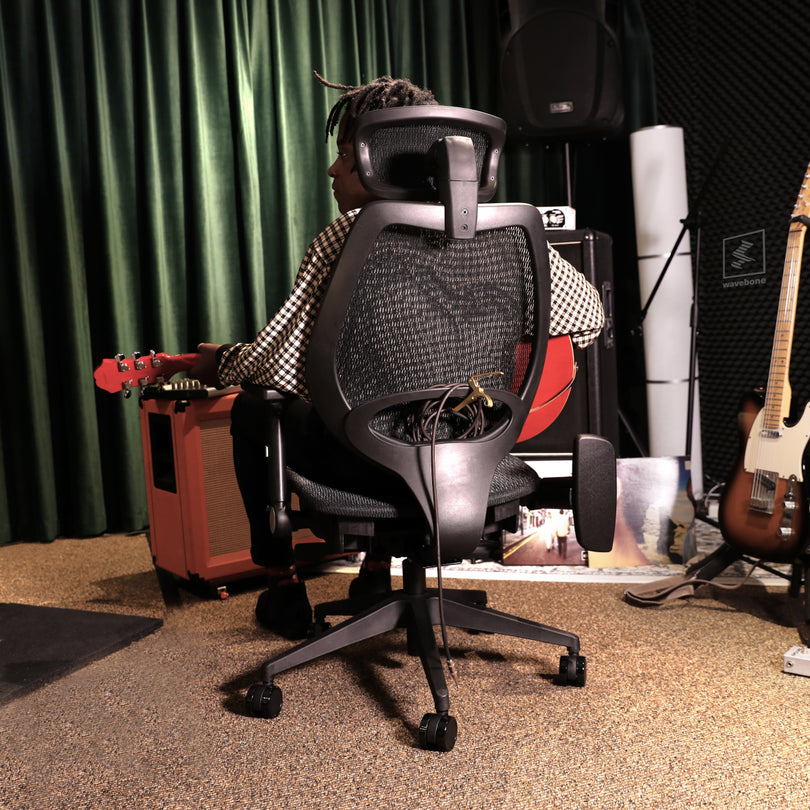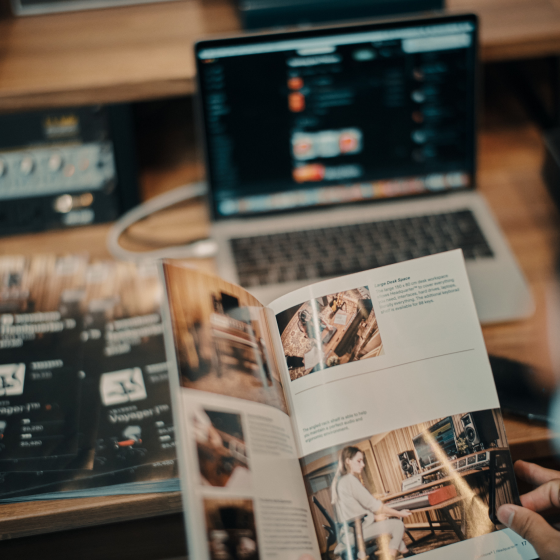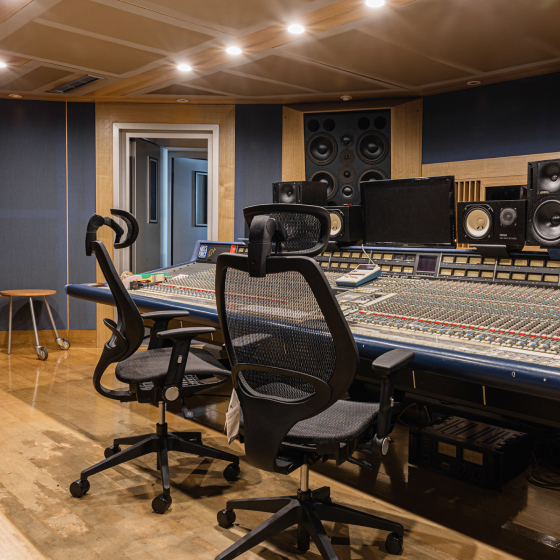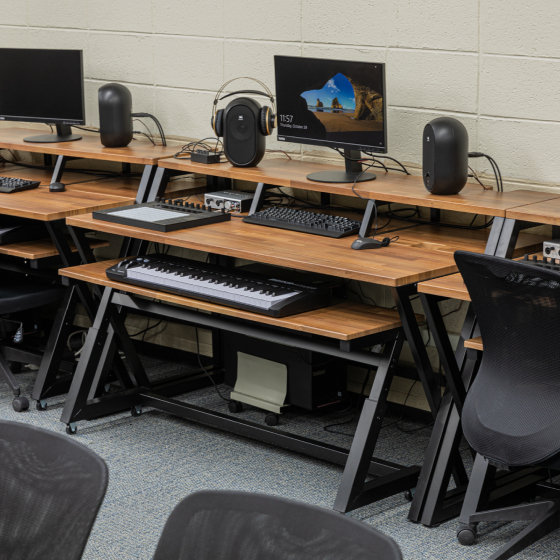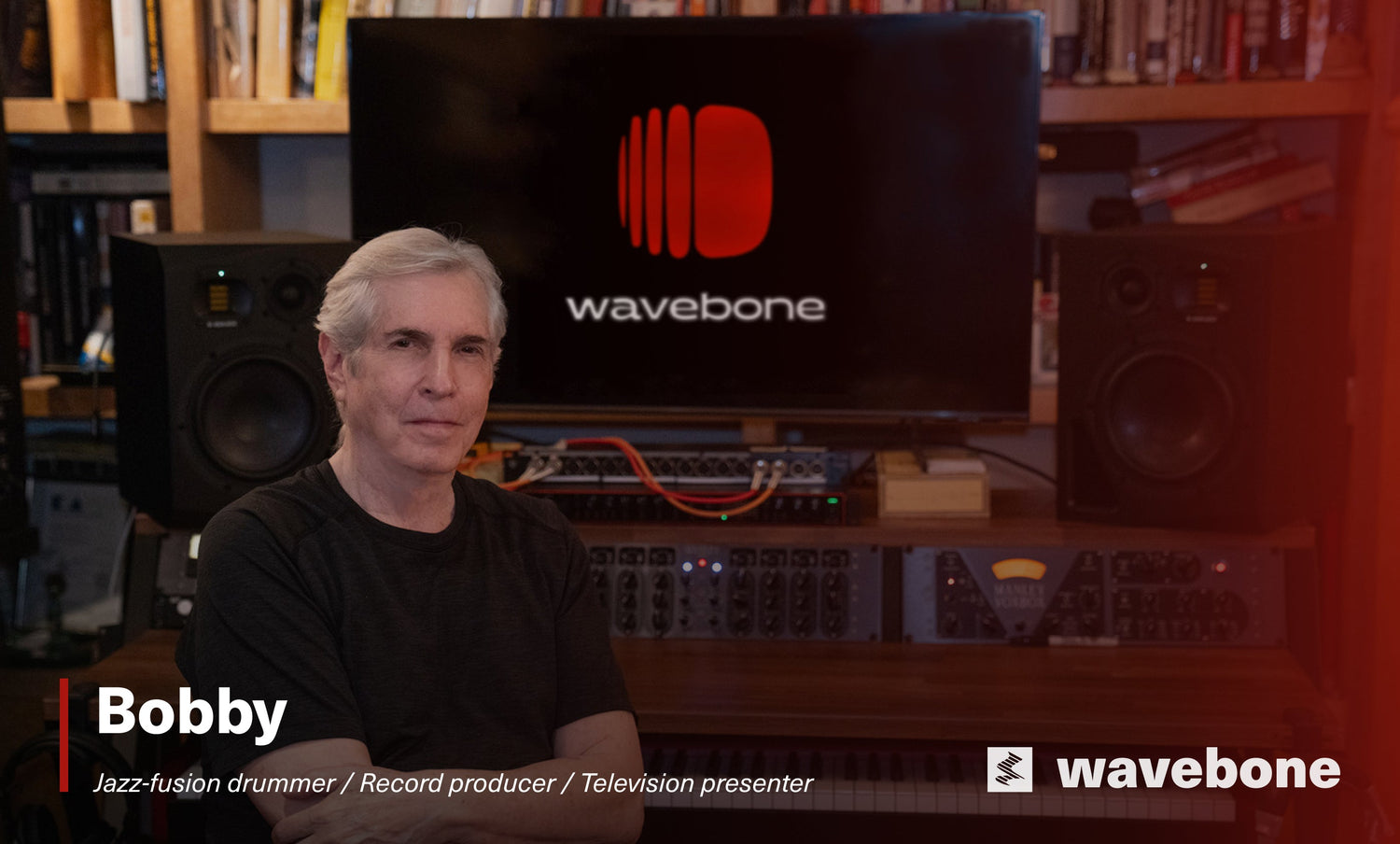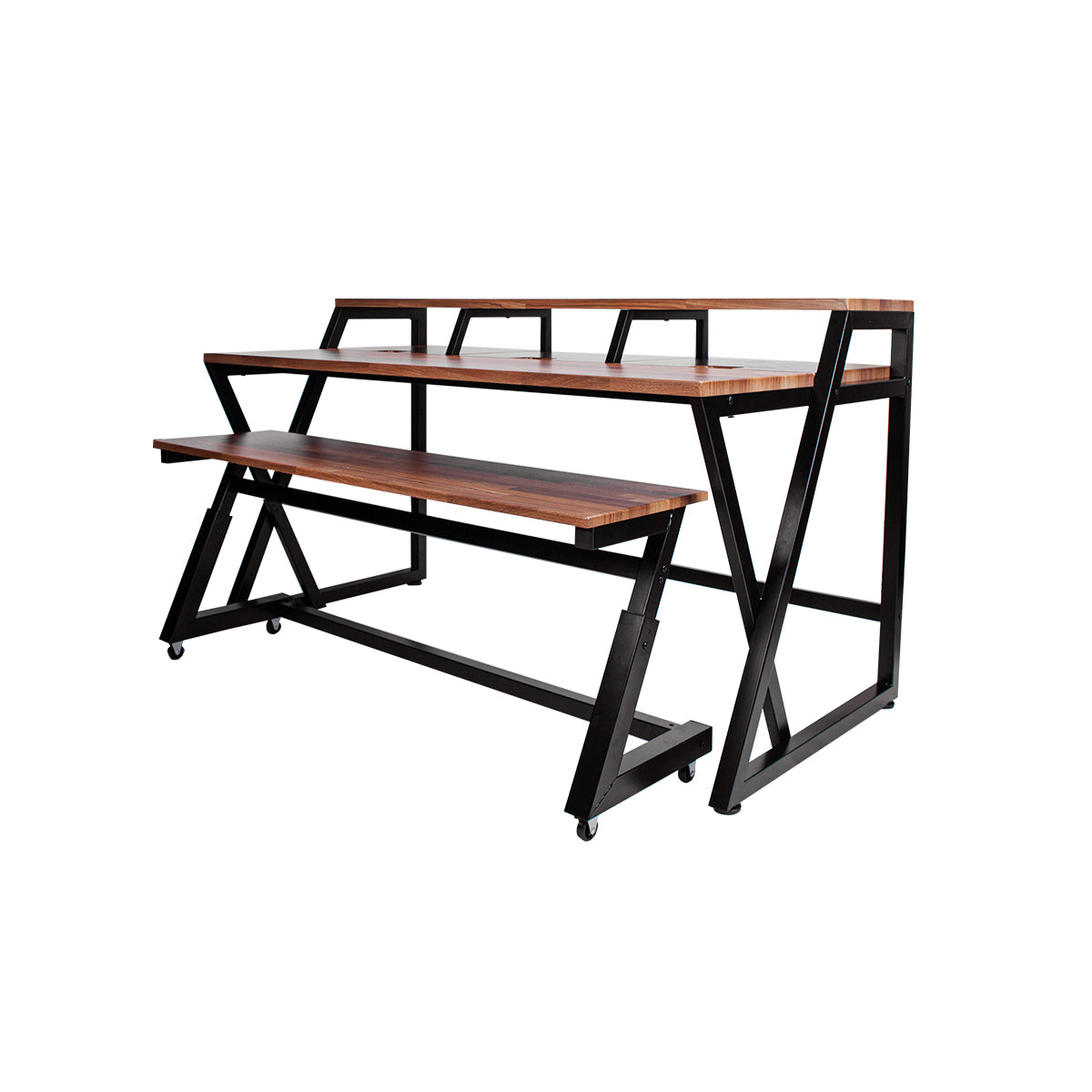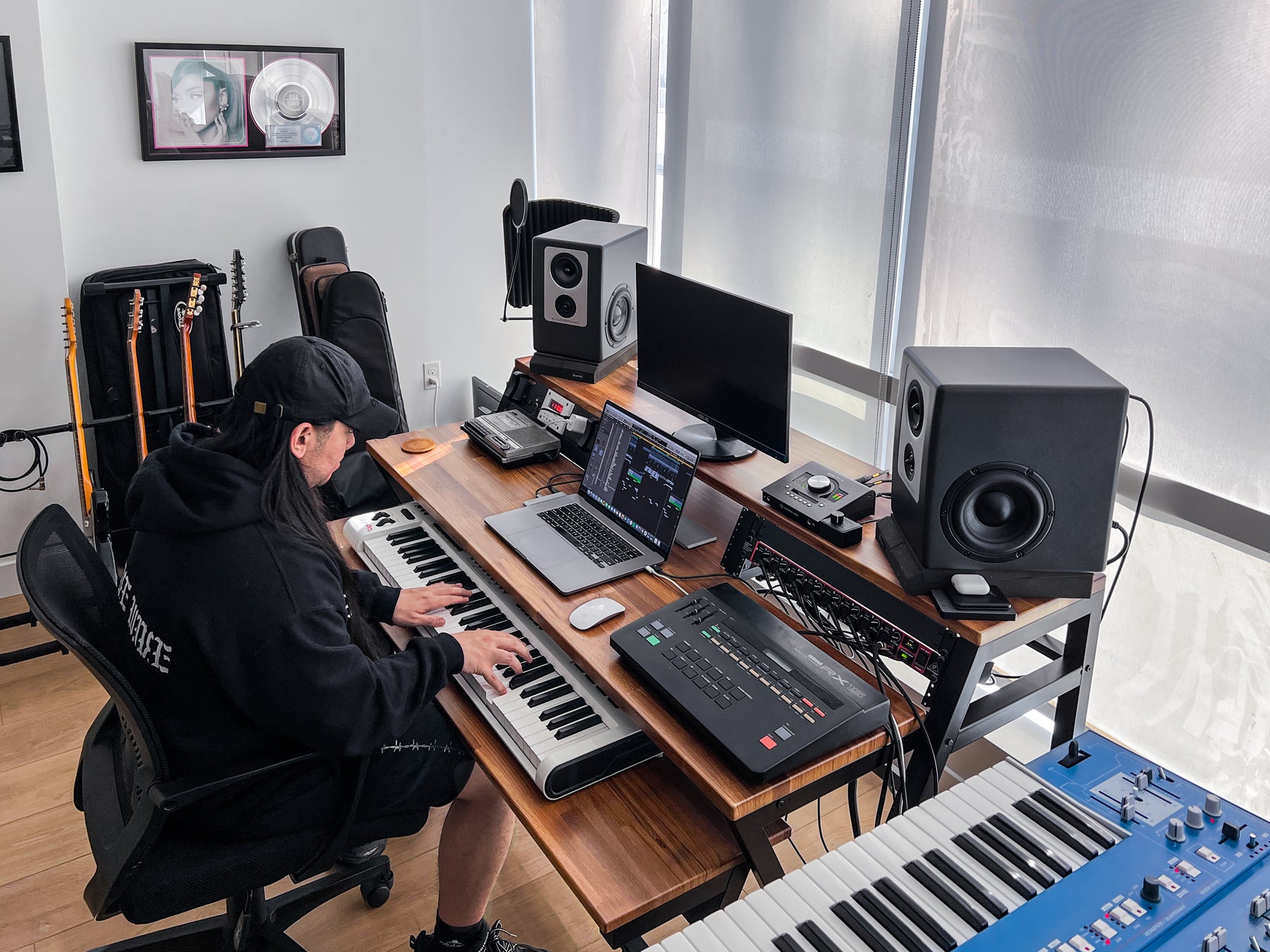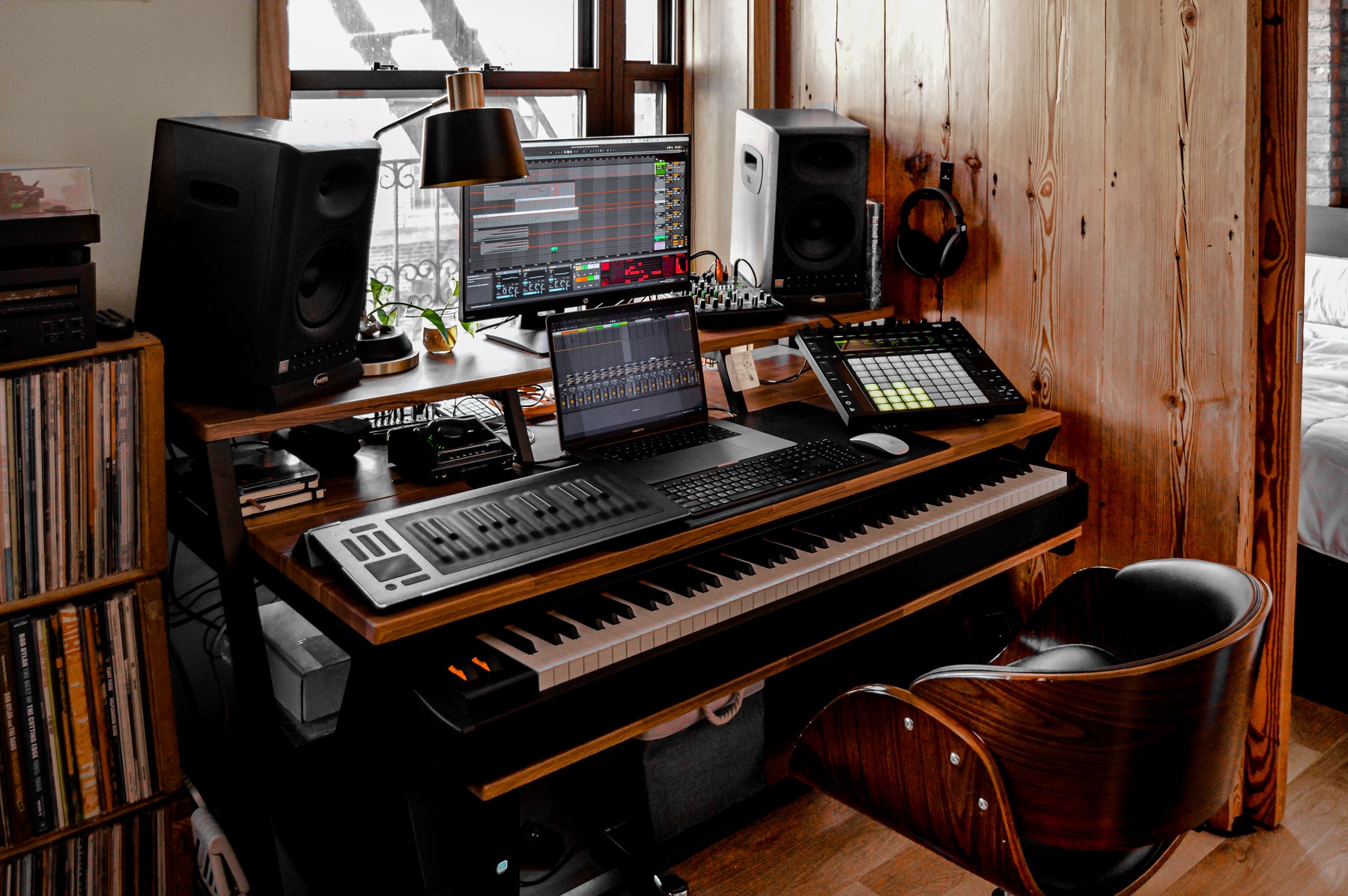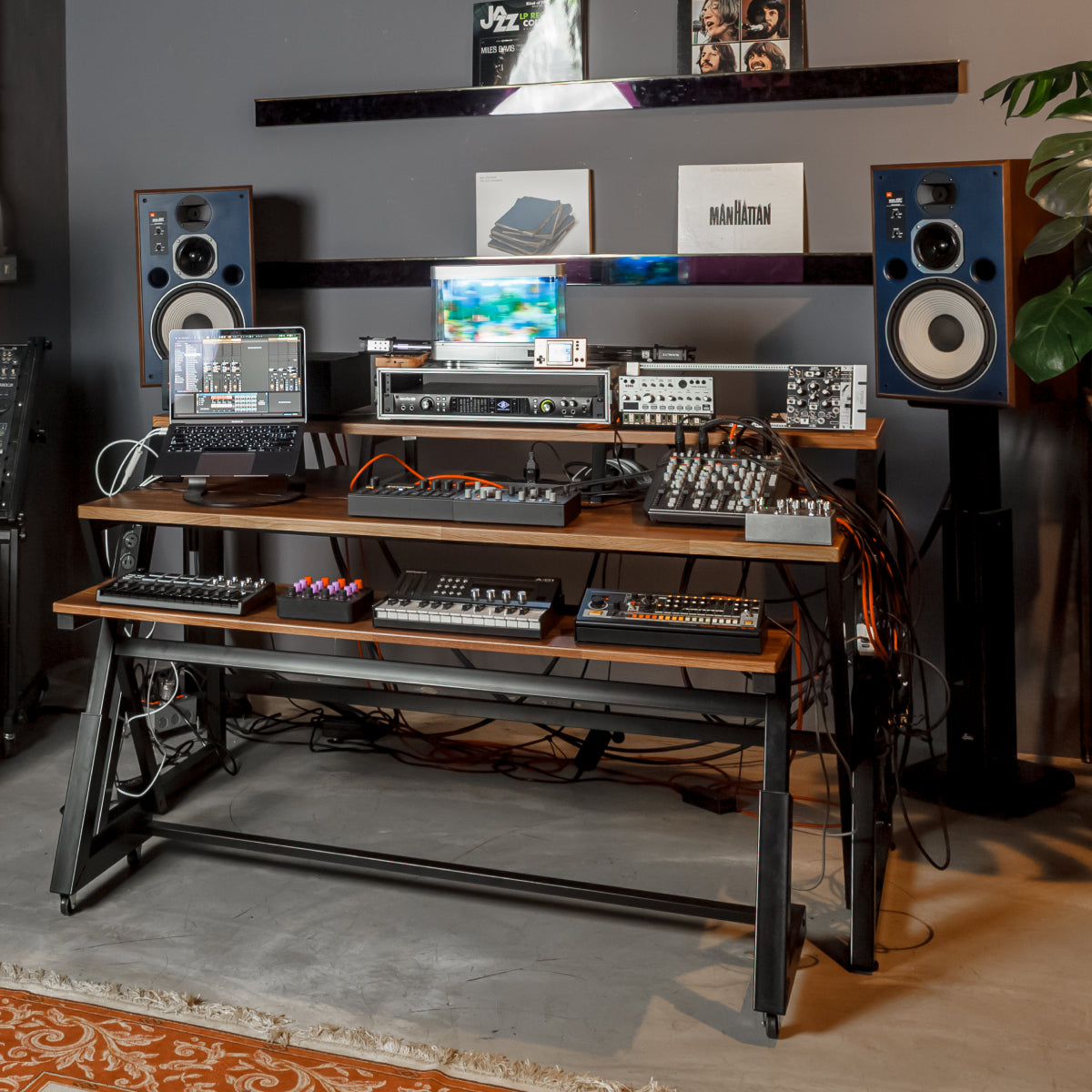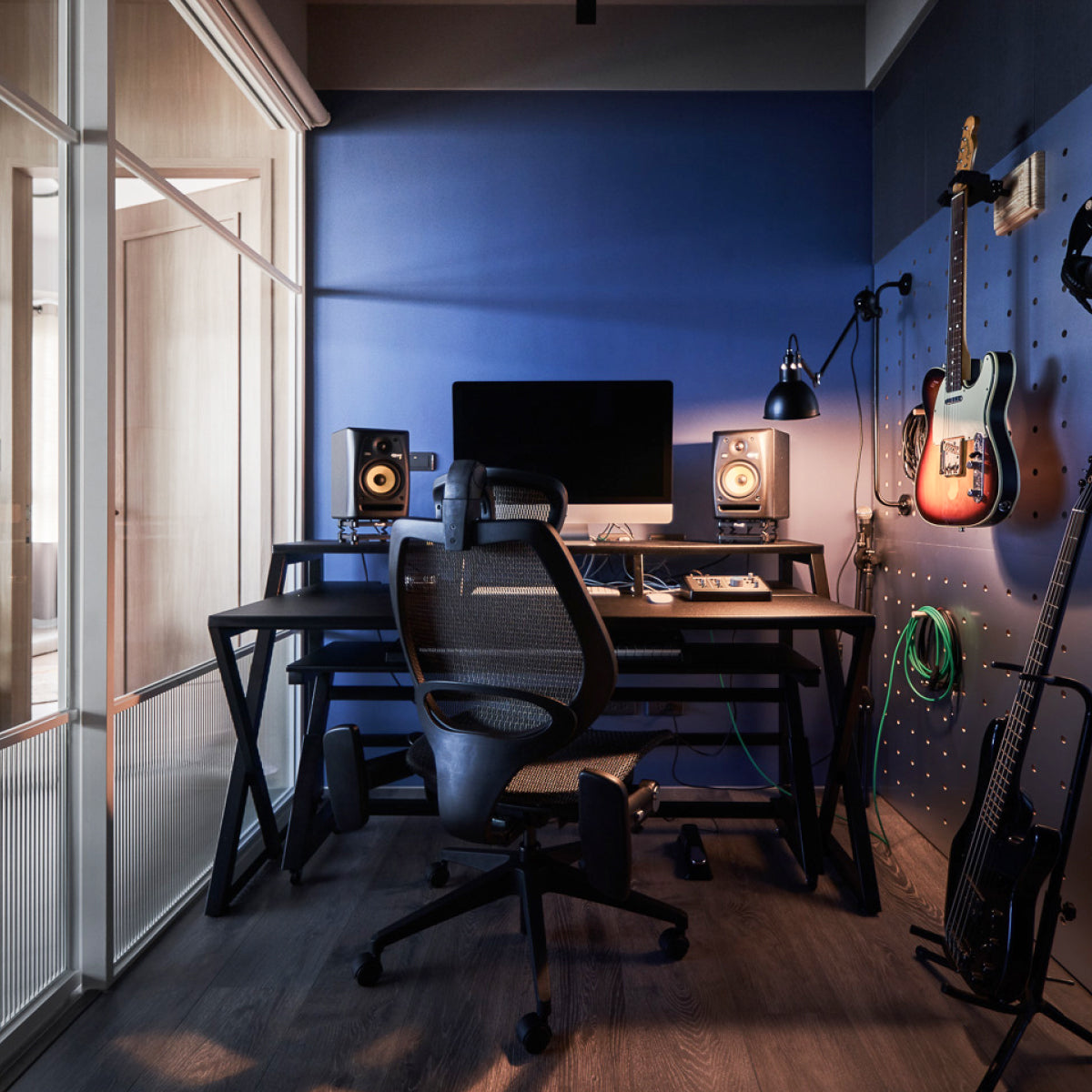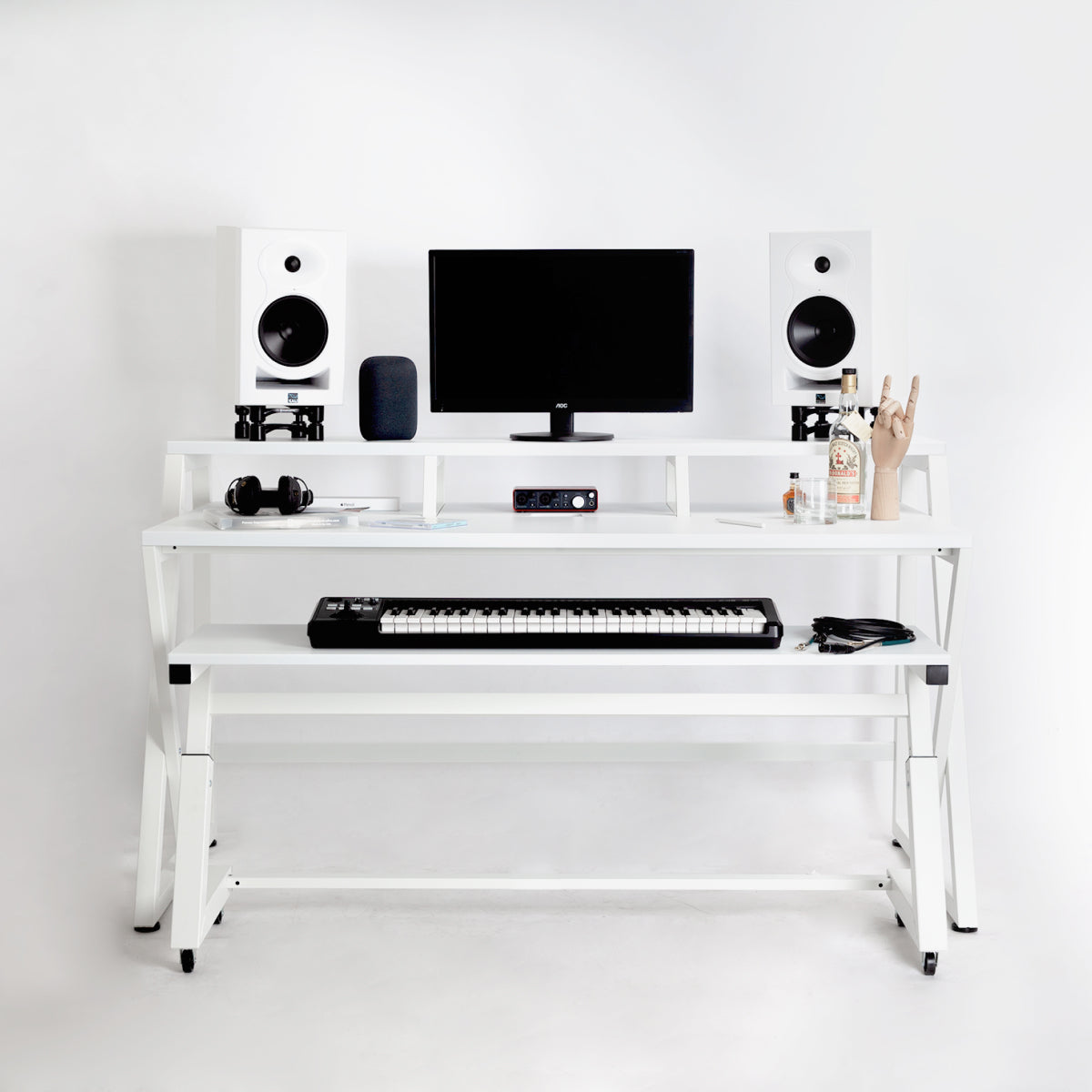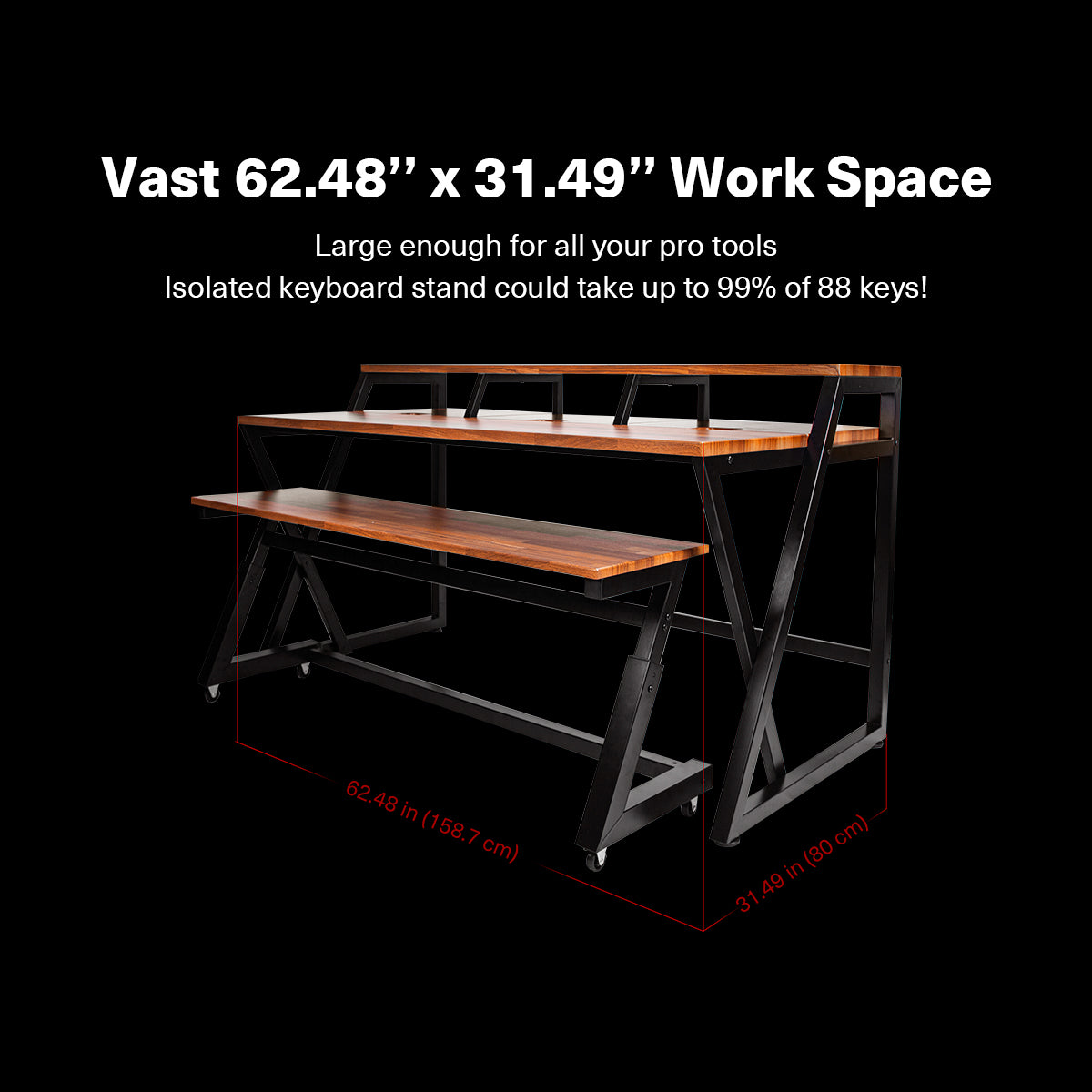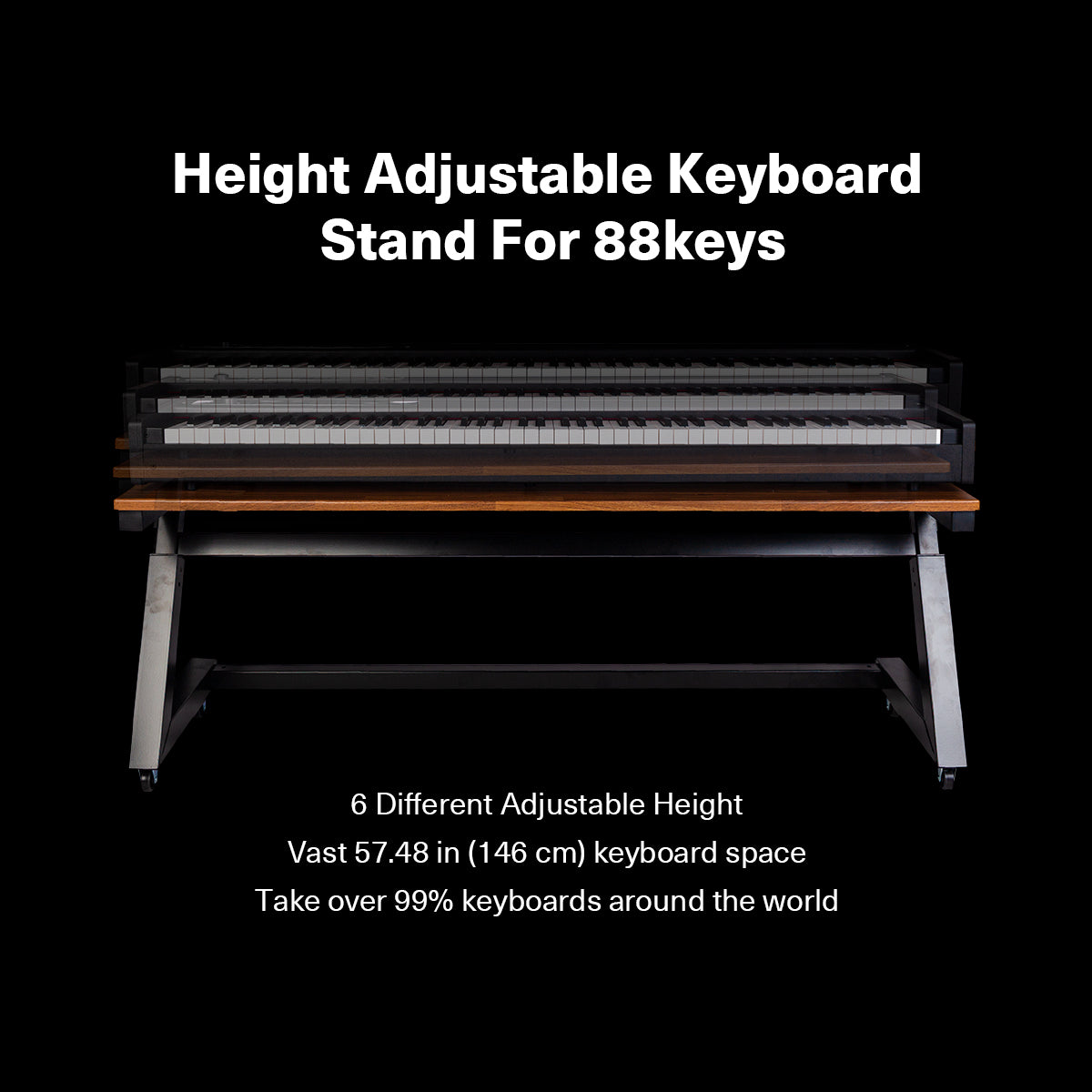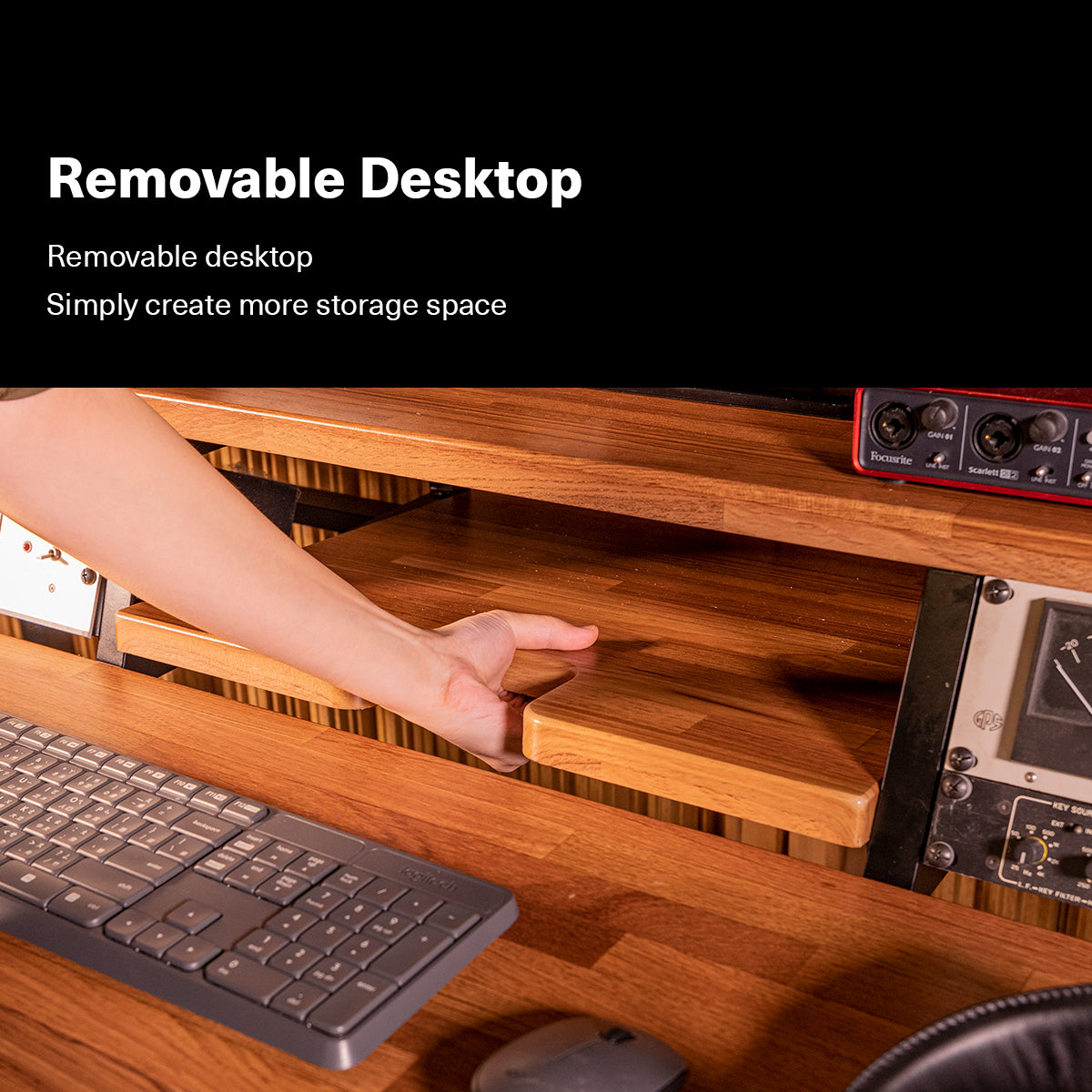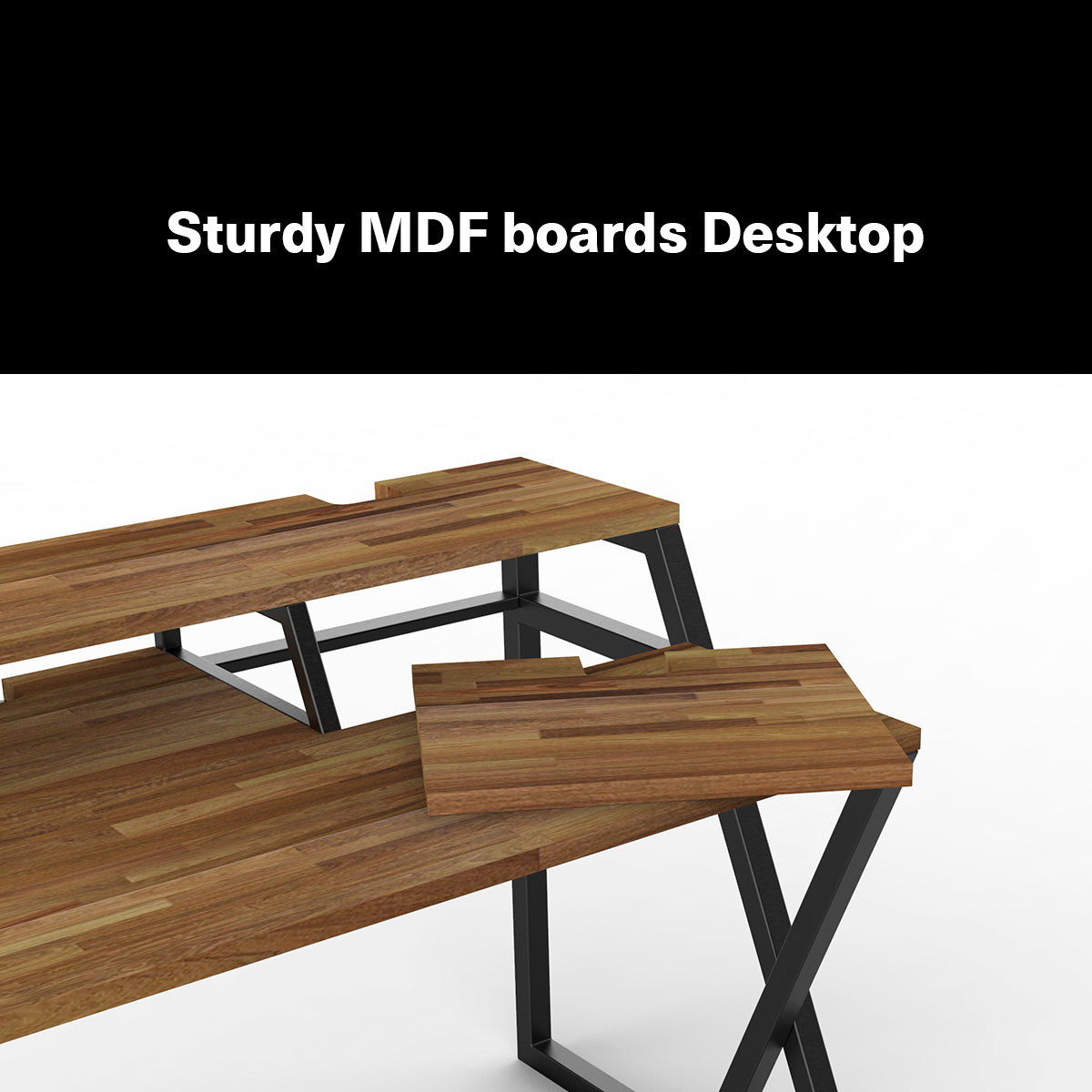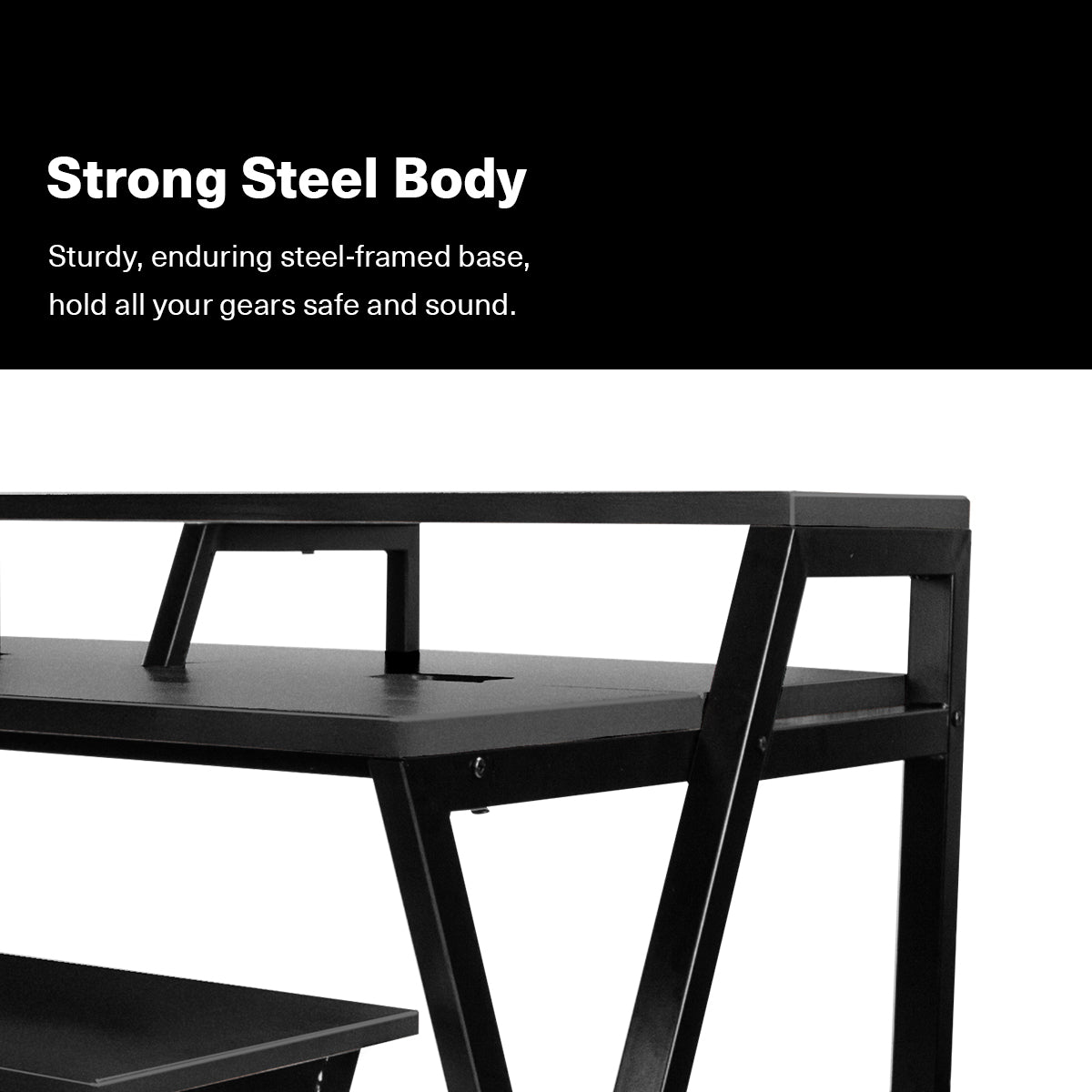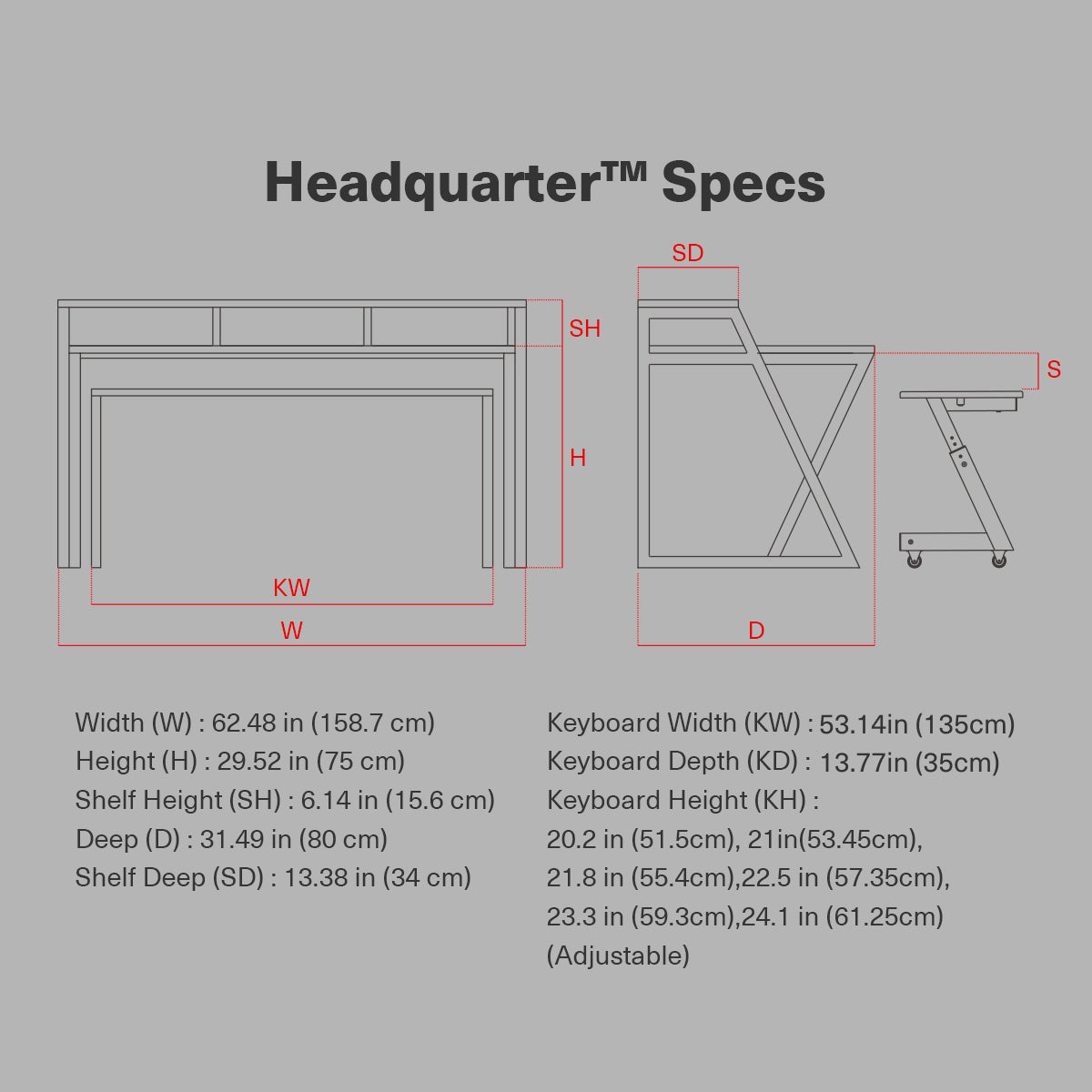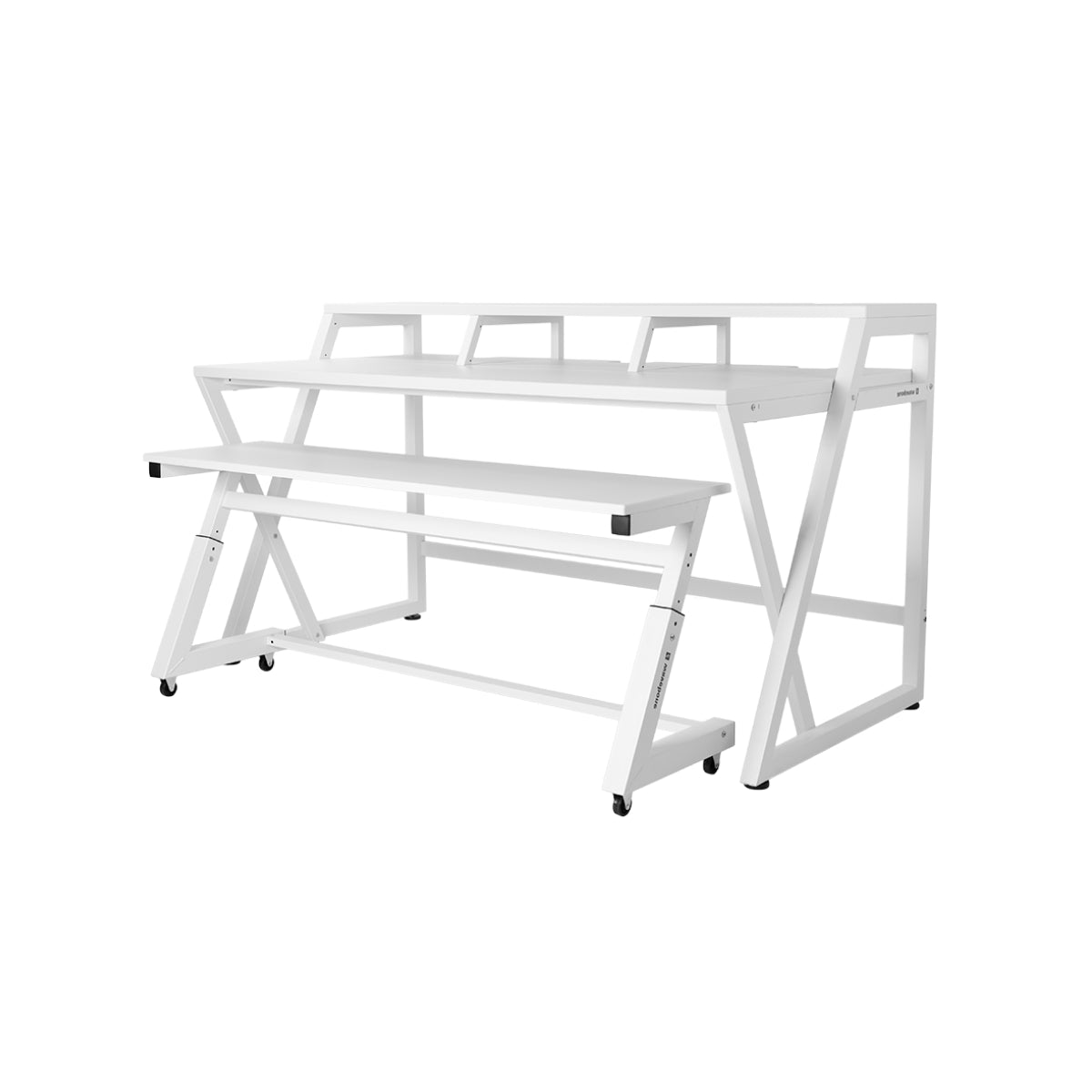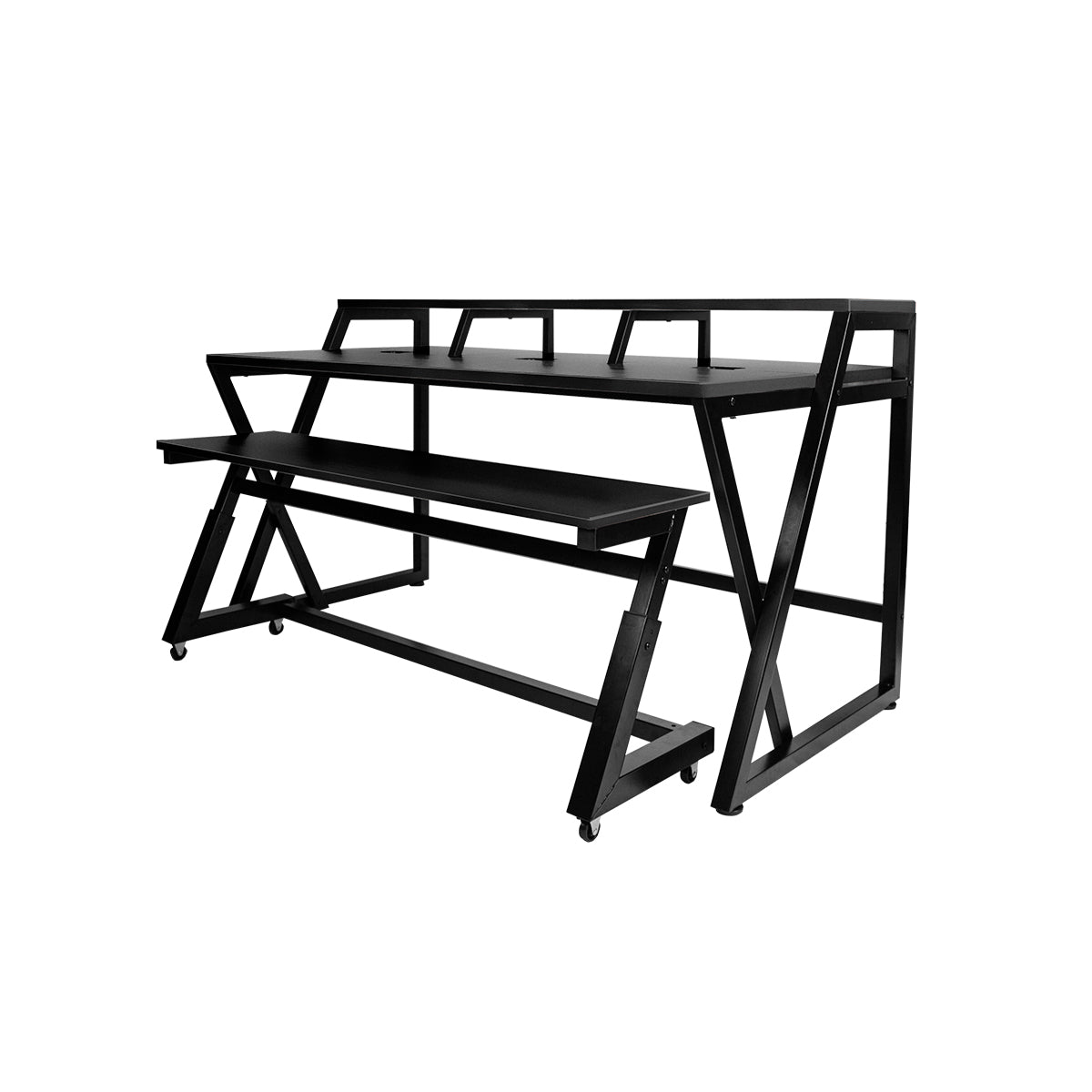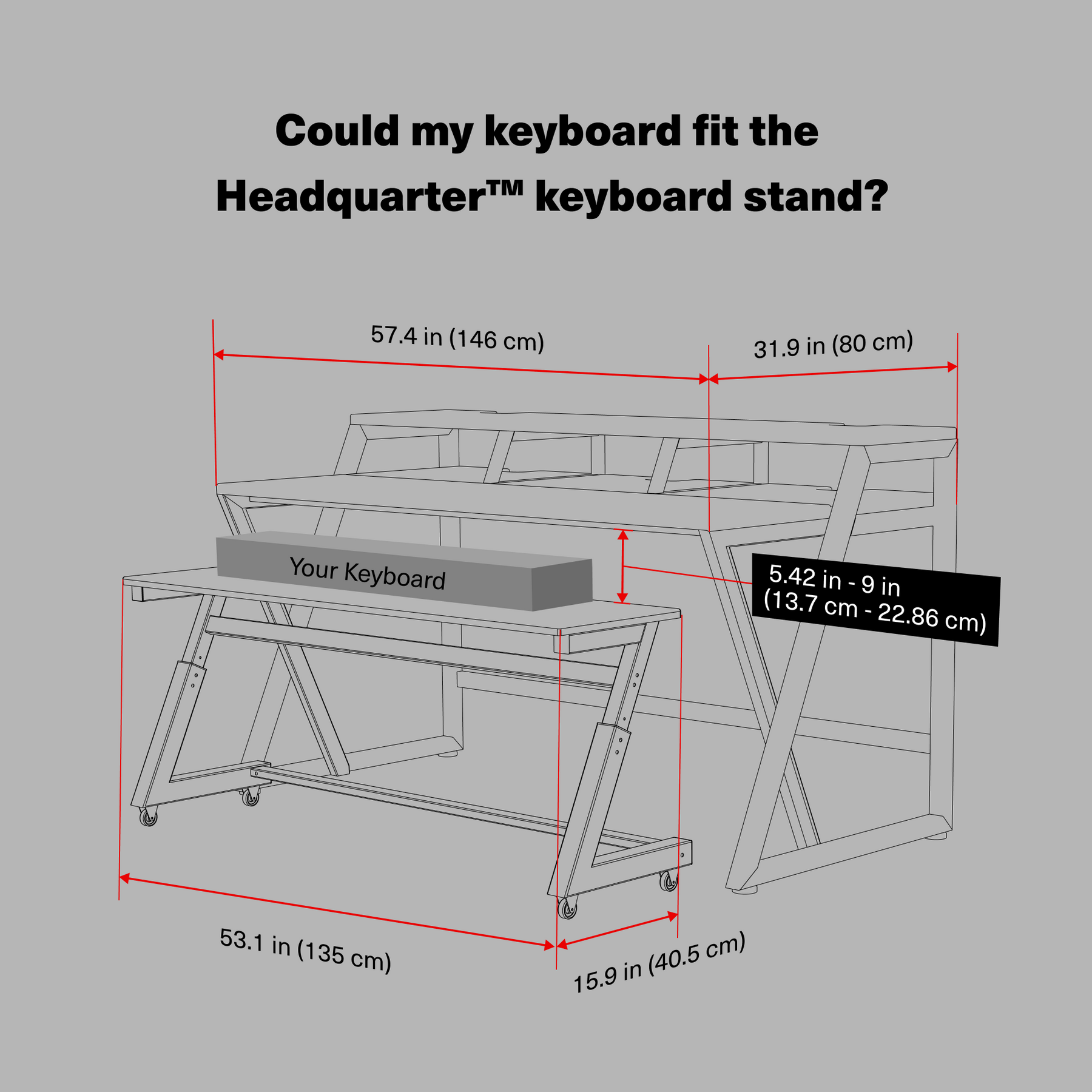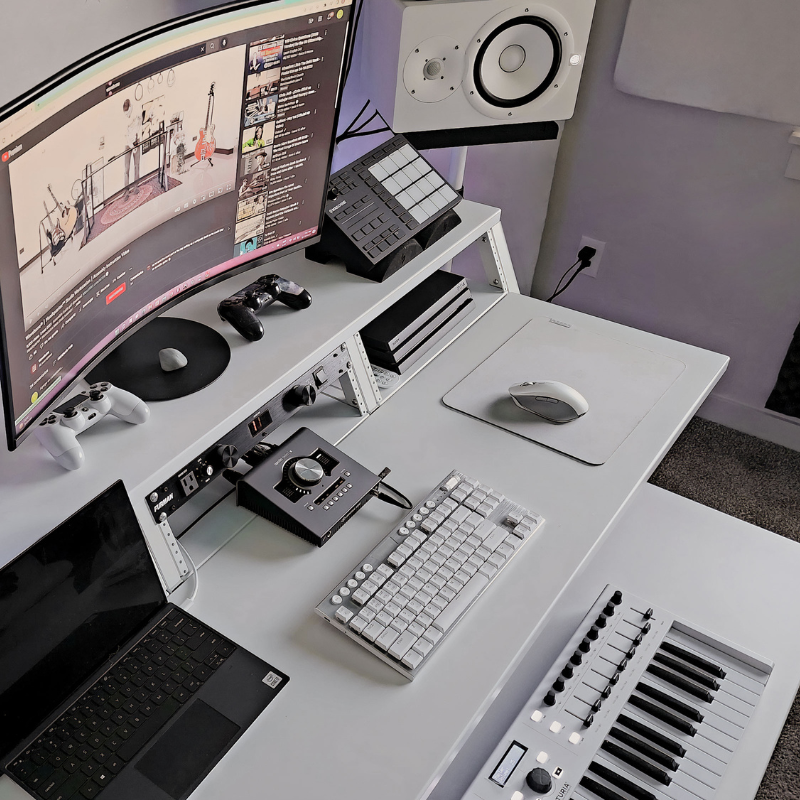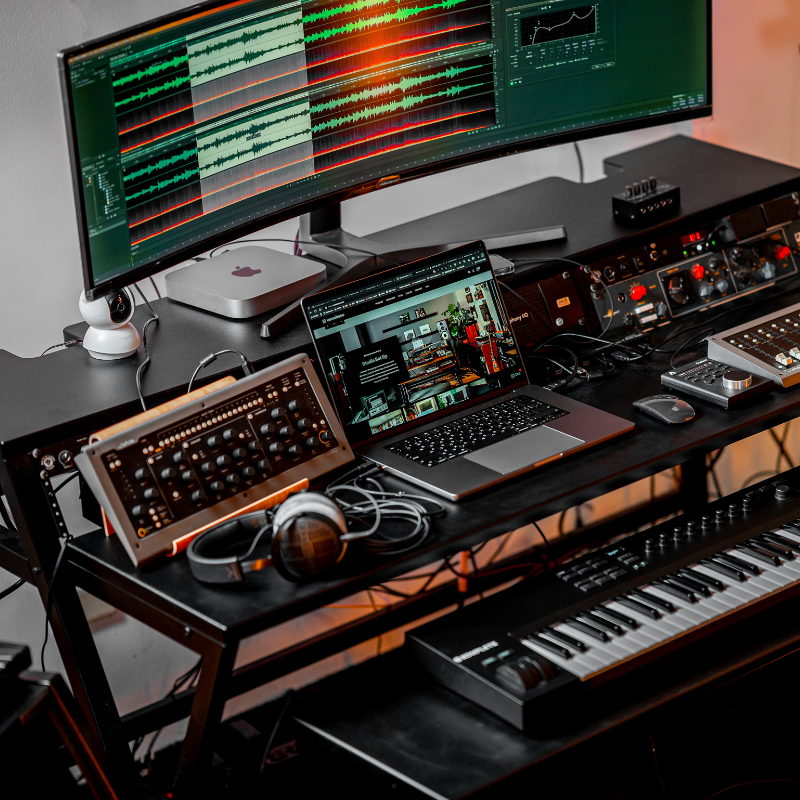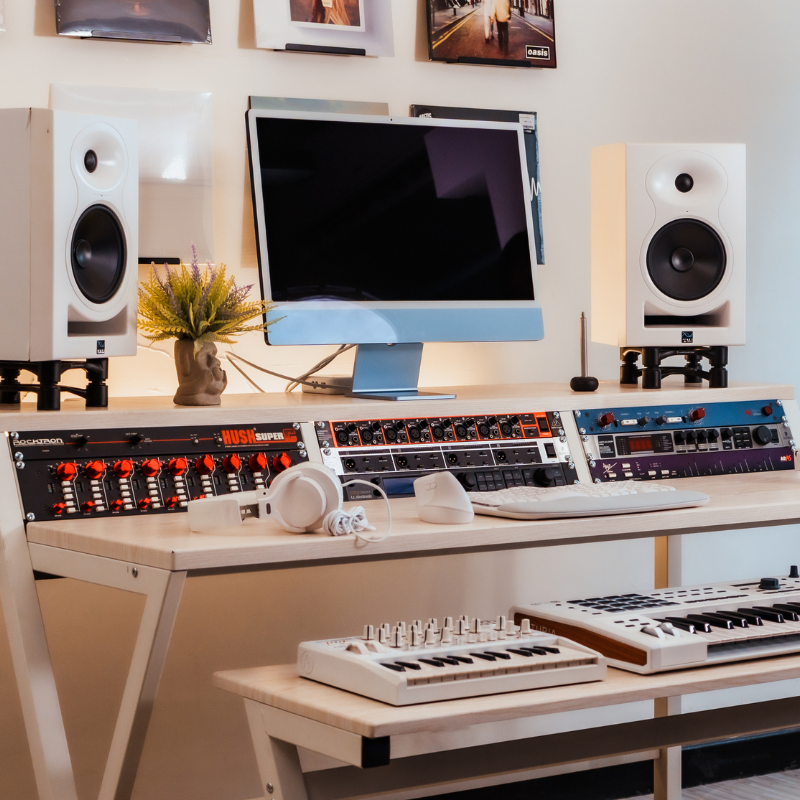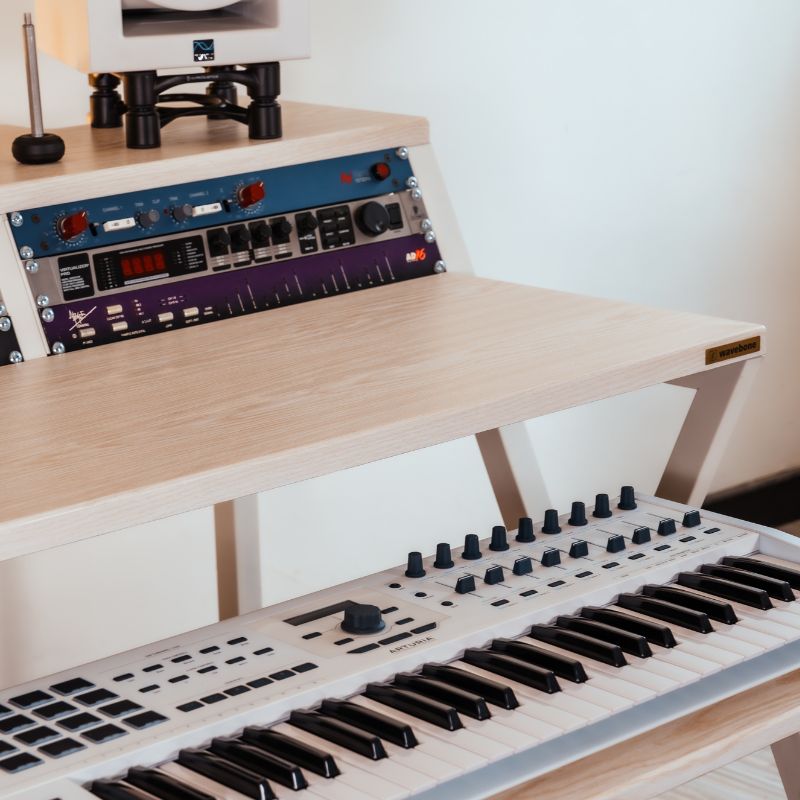From Stage to Studio:
An Interview with Bobby Colomby
Bobby Colomby
Founding member of the legendary band Blood, Sweat & Tears, producer, and TV show host.
How did you first come across Wavebone ?
Bobby:
I was at the NAMM convention, working with a uniquely talented artist, Jesus Molina. He was doing a Pocket Piano demonstration adjacent to your booth. I saw the desk you had on display and thought, "I need one of these badly."
It's well-built and smartly designed. I have a lot of studio gear at home, and this desk seemed perfect for my setup. I was particularly impressed with the build quality and how everything seemed to be thoughtfully designed. It was perfect for my recording needs at home.
How has the desk helped you in your music creation?
Bobby:
The desk is fantastic. It's convenient and makes my workflow much smoother. Jesus Molina can come over, bring his laptop, and we're in business. In just three and a half hours, he can go from zero to a completed track.

The desk helps organize my gear and provides a great workspace. Everything is within reach, and it just fits perfectly in my space. It's really improved our productivity streamlined the recording process.
You've played a variety of roles in your musical career, including drummer in bands, producer and TV presenter, can you talk about how it all started?
Bobby:
I grew up in a family with two much older brothers that were involved with music. Harry Colomby managed Thelonious Monk, who was like the Beethoven of jazz Jules Colomby played the trumpet and was a good friend of Miles. In essence, I grew with Bach and Beethoven in my living room.
I thought of taking the best elements of jazz and rock/pop music and combining them which led to the formation of Blood, Sweat & Tears. Producing music is something I really enjoy because it involves working with great artists and helping them create the best version of themselves at that time of their musical journey

Epic Records gave me a production deal and by happenstance I met Jaco Pastorious. That was the first record I produced other than some of the Blood Sweat and Tears recordings. I was then offered a position as Vice-President of A&R West Coast in Los Angeles. I thought I’d hate LA, but I ended up loving it and stayed. Then Capitol Records asked me to head the A&R department of their Pop division. Ironically, the first three acts I produced there were R&B artists.
One of the things that happened while I was at the Capitol, was an odd phone call from a television show called Entertainment Tonight. They said, “Would you be interested in an interview?” I thought it they wanted to interview me for my musical opinion. It turned out to be a job interview.
They wanted to hire me as their music correspondent. It turned out to be a challenge, a great learning experience and lots of fun. For five years, I was on television. After ET I joined The CBS Morning Show and Dick Clark’s In Person From the Palace.

We covered a lot of different aspects of the music industry, from interviews with artists to live performances and even some behind-the-scenes looks at music production. It was a fantastic way to stay connected with the music scene and to share my passion for music with a broader audience. Being on television, it also allowed me to meet and collaborate with many talented individuals in the industry that I might not ordinarily have connected with.
Do you think your experience as a TV host has influenced your work as a producer?
Bobby:
Absolutely!. Hosting a TV show taught me a lot about communication and presentation, which are crucial skills in music production. It also gave me a broader perspective which helped me understand different facets of the business. This experience definitely enriched my approach to producing music and working with artists.
Since we don’t have children of our own, these young artists become family to me. I root for them and help in any way I can. The experience of having worked with some of the greatest artists of all time has given me a great deal of knowledge.
The Blood, Sweat & Tears had many lineup changes, but the band still exists and continues to tour. What does it mean to you?
Bobby:
People often say, “Oh man, I love the first band,” but the truth is, the first band sold very few albums. It was the second iteration of Blood, Sweat & Tears that was successful.
Since then, there have been many versions of the band, and the list of people who have played with us is very impressive. The current lineup continues to embody the essence of what we originally aimed to create: a fusion of jazz and rock with exceptional musicianship.
The combination of jazz and rock was really something new at the time, and it still stands out today. We’ve had a big impact on music by challenging others to elevate their game and to think differently about combining different genres.
Can you share your thoughts on the new documentary about Blood, Sweat & Tears?
Bobby:
The documentary is fascinating. It’s more of a political thriller than a music documentary. We got caught in the middle of political tensions during the Cold War, facing problems from both the extreme left and right. It’s similar to the political climate today, where extremes on both sides cause division. The documentary sheds light on these issues and the band’s journey.
What’s your current focus in music projects?
Bobby:
Right now, I’m focusing on Jesus Molina. He’s an amazing talent and an absolute joy to work with. I produced his new instrumental album “Selah.” We (Archie Castillo and myself) are also working with Lucia Micarelli, who is coming up with a new concept for herself, combining singing with her brilliant skills as violinist.

